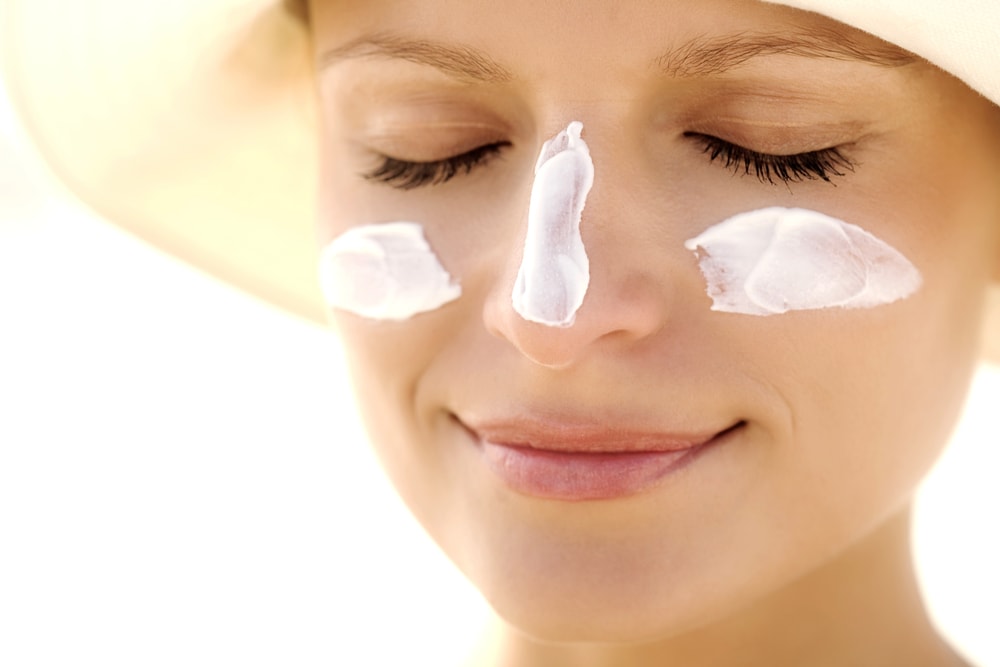
The weather has finally turned; spring is in the air, and summer isn't far away! Before too long, women all over the country will be able to ditch those long sleeves and heavy jeans and start exposing their skin, wearing airy sundresses and cute swimsuits!
But with the stronger spring and summer sun comes an increased danger of sun damage to your exposed skin. Sun damage caused by UV rays is one of the most common causes of skin damage. If you do not protect yourself against the harmful rays of the sun, you are at risk of aging prematurely.
Wearing sunscreen regularly is the best way to protect your skin and your youth. Learn more about the science behind sunscreen below.
What Is Sunscreen – And How Does It Work?
Sunscreen uses specialized compounds to block the effects of both UVA and UVB sun rays. Both types of ultraviolet rays are invisible and penetrate deeply into the skin. Too much UV radiation from the sun can damage the genetic material (DNA) in your skin cells, causing photoaging – premature aging of the skin due to sun exposure. In photoaging, the skin develops wrinkles and fine lines because of changes in the collagen of a deep skin layer.
Most sunscreen creams and lotions use both inorganic and organic particles that react to the UV light of the sun and “scatter” it – thereby preventing it from penetrating the skin. Some commonly used particles include titanium dioxide and zinc oxide, as well as several other compounds that absorb UV rays.
Over a lifetime, repeated episodes of sunburn and unprotected sun exposure can increase a person's risk of malignant melanoma and other forms of skin cancer. As a rule, if you have fair skin and light eyes, you are at greater risk of sun-related skin damage and skin cancers. This is because your skin contains less of a dark pigment called melanin, which helps to protect the skin from the effects of UV radiation.
What’s The Best Sunscreen For Me? Understanding SPF
Ready to pick out a sunscreen, but not sure how much protection you need? SPF can get confusing! It stands for “Sun Protection Factor,” and it is a measurement of how much sun protection a particular sunscreen will give your skin.
SPF does not indicate how effective a sunblock is at blocking UV rays. Rather, it measures how long we can be exposed to UV rays before damage occurs.
This depends partly on your skin type. If you are very fair-skinned and would normally burn after 10 minutes in the sun, an SPF 15 sunscreen would multiply the time you can spend by a factor of 15 – meaning 150 minutes.
But if you have darker skin, you may be able to spend up to 30 minutes in the sun without burning. That means that, in ideal conditions, SPF 15 sunblock could prevent burning for up to 450 minutes (30 multiplied by a factor of 15) – though sweat and water exposure usually mean you can’t go this long without re-applying.
As a rule, fair-skinned people will benefit from a higher SPF. However, we recommend a minimum of SPF 30, no matter what the color of your skin may be.
For the best protection, The Advanced Center for Plastic Surgery recommends and offers Sente, a professional-grade, science-based skincare line, specifically the Sente Pollution ShieldTM SPF 46.
How Else Can I Protect My Skin?
Other ways you can protect your skin include:
- Avoiding exposure to peak UV rays (11AM-4PM)
- Wearing a large sun hat
- Covering up with UV-resistant clothing
- Wear sunglasses with UV light protection.
However, there is no replacement for sunblock. It should be used in addition to these precautions for truly age-defying skin. We recommend using a lotion that contains sunblock, as this makes it easy to protect your skin as part of your daily skincare routine.
If you take these precautions and apply sunscreen regularly during the spring and summer, you can have fun in the sun – and still keep your skin youthful, healthy and gorgeous.
Do I Have Any Options For Restoring Sun Damaged Skin?
Sun damage can cause spots, discoloration, wrinkles and other undesirable conditions. The Advanced Center for Plastic Surgery offers treatments, such as chemical peels, micro-needling and laser resurfacing that can help you restore your skin. If you have extensive skin damage or skin sagging from long periods of sun exposure, read more about the UpLyft, the advanced natural facelift (no general anesthesia required) as an option for you.
Remember, the best treatment is prevention! Whether you are restoring your sun-damaged skin, or looking to prevent damage, make sure to follow our above tips, wear sunblock, and take all other required precautions to stay safe this spring and summer!



